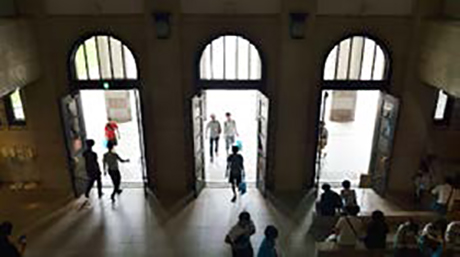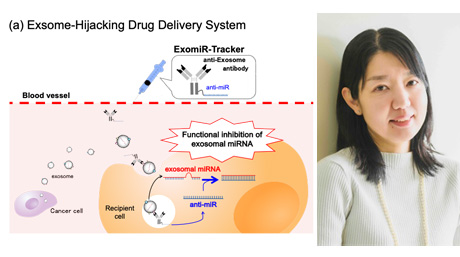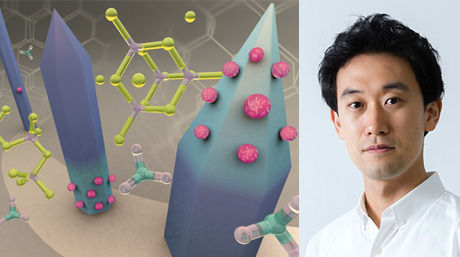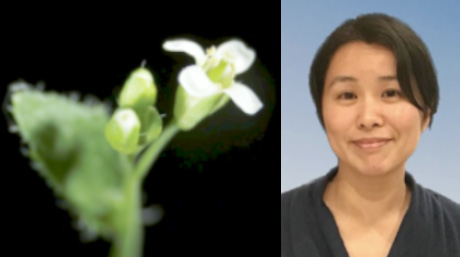Life Science and Technology News
【Labs spotlight】Kadonosono Laboratory
The Department has a variety of laboratories for Life Science and Technology, in which cutting-edge innovative research is being undertaken not only in basic science and engineering but also in the areas of medicine, pharmacy, agriculture, and multidisciplinary sciences.
This "Spotlight" series features a laboratory from the Department and introduces you to the laboratory's research projects and outcomes. This time we focus on Kadonosono Laboratory working on the development of design technique for next-generation biologics.
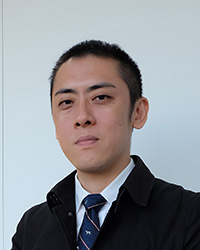
Areas of Supervision
Primary/Science and Technology for health Care and Medicine
Secondary/Life Science and Technology, Human Centered Science and Biomedical Engineering
Associate Professor Tetsuya Kadonosono![]()
| Office | Room 421A, B2 building, Suzukakedai campus |
|---|---|
| Degree | PhD 2008, Kyoto University |
| Areas of Research | Medicinal protein engineering |
| Keywords | Biologics design, Nano quantum sensor for tumor detection |
| WEBsite URL | Kadonosono Lab. |
Research interest
Along with the evolution of biotechnology, biologics have been developed from biomolecules (proteins, peptides, and nucleic acids) and cells in the human body. Because biologics are able to have advanced mechanisms of action that cannot be achieved with conventional low-molecular compound drugs, epoch-making therapeutic drugs are being created one after another. However, due to the characteristic that biologics function in conjunction with life activities, biologics sometimes show unexpected short drug effects and strong side effects. In order to contribute to the extension of healthy life expectancy, we aim to generate a design technology for advanced biologics, developing next-generation biologics with high drug efficacy and low side effect and diagnostic agents that can detect diseases with ultra-high sensitivity.
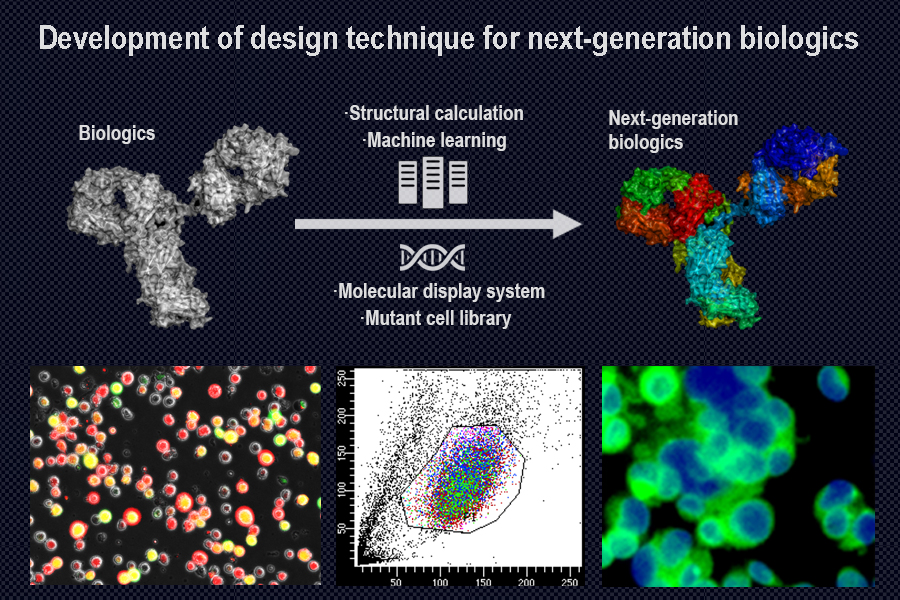
Selected publications
T. Kadonosono, K. Miyamoto, S. Sakai, Y. Matsuo, S. Kitajima, Q. Wang, M. Endo, M. Niibori, T. Kuchimaru, T. Soga, K. Hirota, S. Kizaka-Kondoh*, “AGE/RAGE axis regulates reversible transition to quiescent states of ALK-rearranged NSCLC and pancreatic cancer cells in monolayer cultures”, Sci Rep, 12 (1), 9886 (2022)
K. See, T. Kadonosono*, K. Miyamoto, T. Tsubaki, Y. Ota, M. Katsumi, S. Ryo, K. Aida, M. Minegishi, T. Isozaki, T. Kuchimaru, S. Kizaka-Kondoh, “Antibody-guided design and identification of CD25-binding small antibody mimetics using mammalian cell surface display”, Sci Rep, 11 (1), 22098 (2021)
K. See, T. Kadonosono*, Y. Ota, K. Miyamoto, W. Yimchuen, S. Kizaka-Kondoh, “Reconstitution of an anti-HER2 antibody paratope by grafting dual CDR-derived peptides onto a small protein scaffold”, Biotechnol J, 15(12), 2000078 (2020)
W. Yimchuen, T. Kadonosono*, Y. Ota, S. Sato, M. Kitazawa, T. Shiozawa, T. Kuchimaru, M. Taki, Y. Ito, H. Nakamura, S. Kizaka-Kondoh, “Strategic design to create HER2-targeting proteins with target-binding peptides immobilized on a fibronectin type III domain scaffold”, RSC Adv, 10, 15154-15162 (2020)
T. Kadonosono, W. Yimchuen, Y. Ota, K. See, T. Furuta, T. Shiozawa, M. Kitazawa, A. Patil, T. Kuchimaru, S. Kizaka-Kondoh*, “Design strategy to create antibody mimetics harbouring immobilised complementarity determining region peptides for practical use”, Sci Rep, 10(1), 891 (2020)
Contact
Associate Professor Tetsuya Kadonosono
Room 421A, B2 building, Suzukakedai campus
E-mail : tetsuyak -at- bio.titech.ac.jp
Tel / Fax : +8145-924-5848
*Find more about the lab and the latest activities at the lab site![]() .
.
*May 1, 2025:Some of the content has been updated with the latest information.
